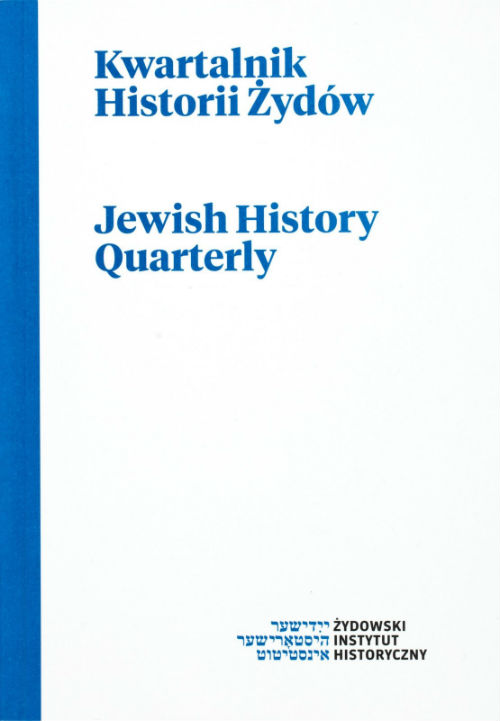Shabbetai Bass – Author, Bibliographer and Editor
Shabbetai Bass – Author, Bibliographer and Editor
Author(s): Magdalena BendowskaSubject(s): Cultural history
Published by: Żydowski Instytut Historyczny
Keywords: Shabbetai Bass; Jewish bibliography; Jewish printing shops
Summary/Abstract: Inhabited by the end of the 17th century by ca 350 thousand Jews, the Commonwealth of Poland was the largest marketplace for Jewish prints. Yet, in this country there was not a single active Hebrew printing house capable of satisfying the demand for Hebrew and Yiddish books. The printing houses in Kraków and Lublin turned out their last publications in 1672 and 1691 respectively. Polish Jews’ huge demand for books was met by foreign printers. Dutch printers exploited this situation to perfection. Amsterdam became the hub of Jewish printing and the main supplier of Hebrew books to the Commonwealth. In addition, Jewish printing houses gave work to printers and typesetters from Poland. One of them was Kalisz-born Shabbethai Bass (1641-1718). After studying in Prague, he finally settled in Amsterdam. There, he published Sifte Chachamim, his sub-commentary to Rashi’s commentary to the Pentateuch, next a guide for travelers entitled Masseket Derek Erez, and also Siftei Yeshenim, the first Jewish bibliography written by a Jewish author. Several years later, Bass decided to start his own printing activity. Competition in Amsterdam being too fierce, he found a suitable location in Silesia, close to the Commonwealth border, under the assumption that the output of his printing shop would be destined for Polish Jews. In 1689 he moved to the town of Dyhernfurth. This proved to be a sensible location, because of the proximity of the Polish marketplace, as well as the closeness of Wrocław, owing to its fairs the largest trading center for Jewish books in Central and Eastern Europe in the 17th century. Bass’ employees were Polish and Bohemian Jews from Kraków, Wodzisław and Prague. In 1689 he published his first book, Beit Shmuel - a commentary to Shulchan Aruch by Samuel ben Uri Shraga Phoebus from Wodzisław. Before 1718, his printing presses turned out 132 publications, among them Majim Chajim by Chaim ben Yoshua Segal - a book of special significance as far as the history of Hebrew printing in the Commonwealth is concerned, for it reveals the role played by the Council of the Four Lands in the collapse of Jewish printing houses in the second half of the 17th century. In 1712 the Jesuits accused Bass of spreading anti Christian contents. After a trial that ended with a definite vindication of Shabbethai Bass and his son, the printing house’s activity slowed down before it was finally sold in 1717. Shabbethai Bass, one of the most prominent Jews living in Silesia at the turn of the 17th and 18th centuries, achieved fame as the first Jewish bibliographer, successful publisher and founder of the first long-lasting and significant Jewish printing house in Silesia.
Journal: Kwartalnik Historii Żydów
- Issue Year: 247/2013
- Issue No: 03
- Page Range: 473-493
- Page Count: 19
- Language: English

